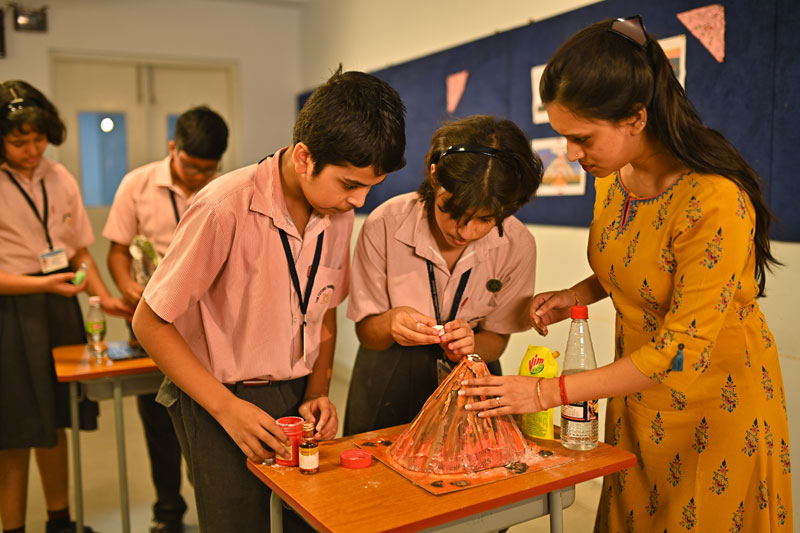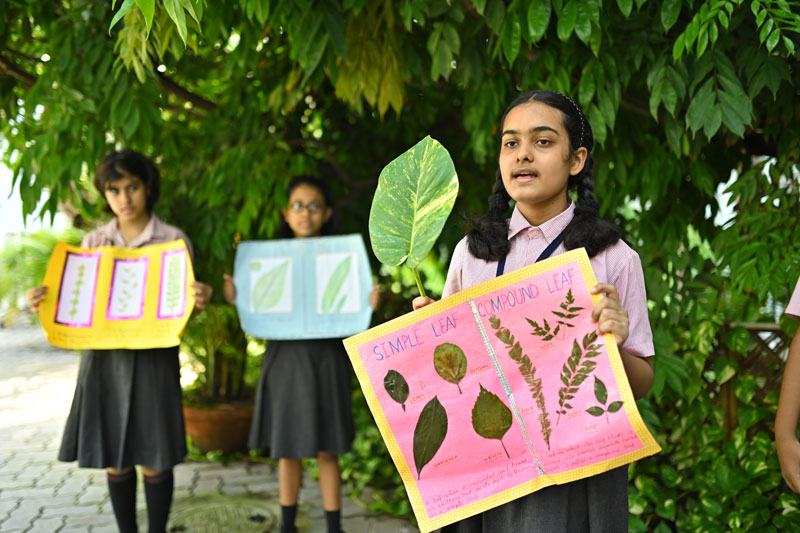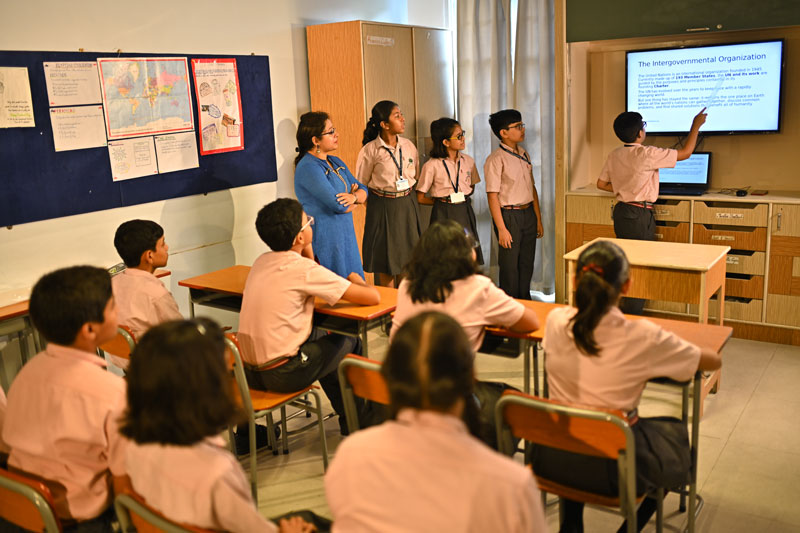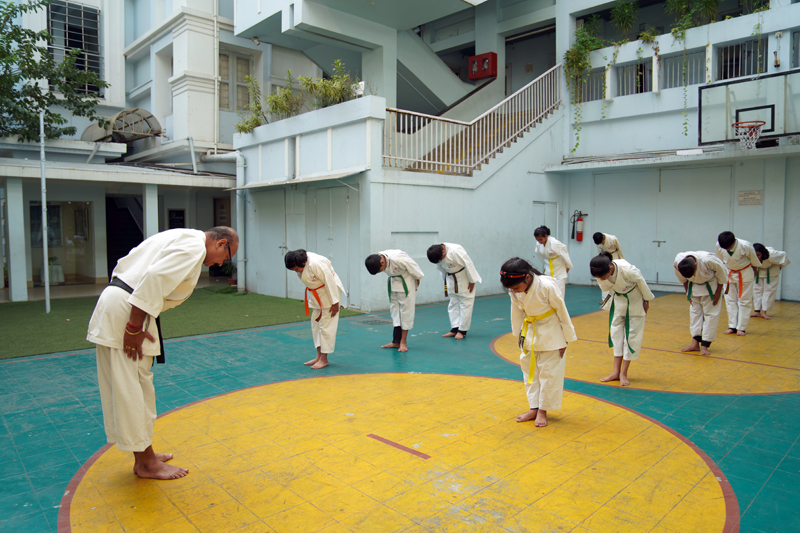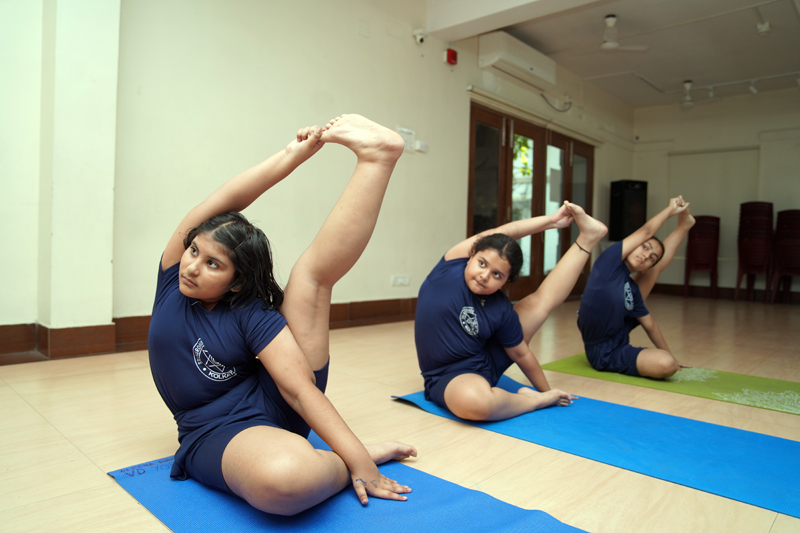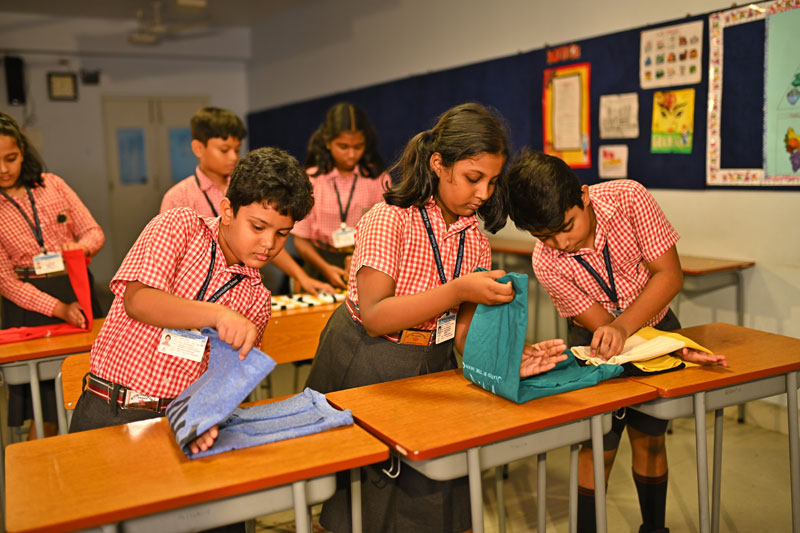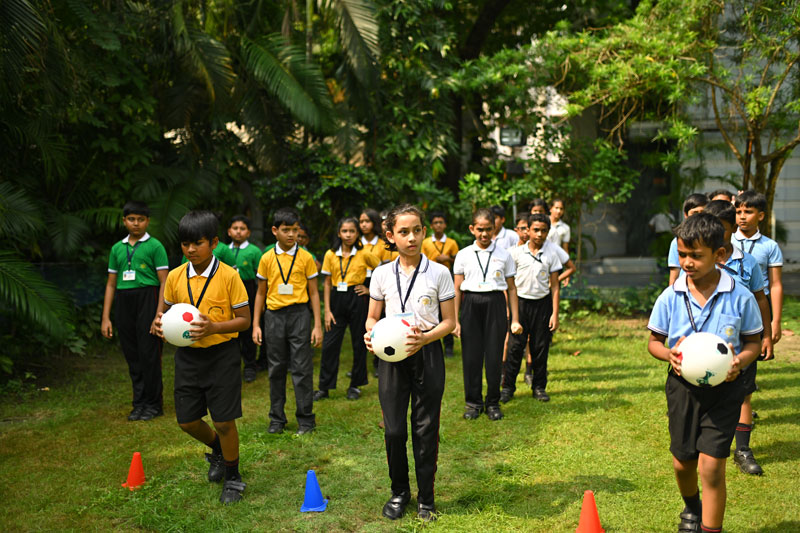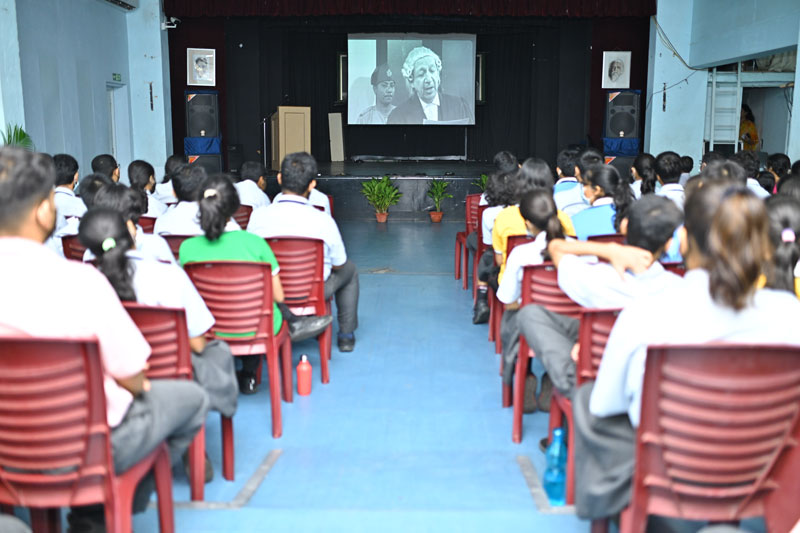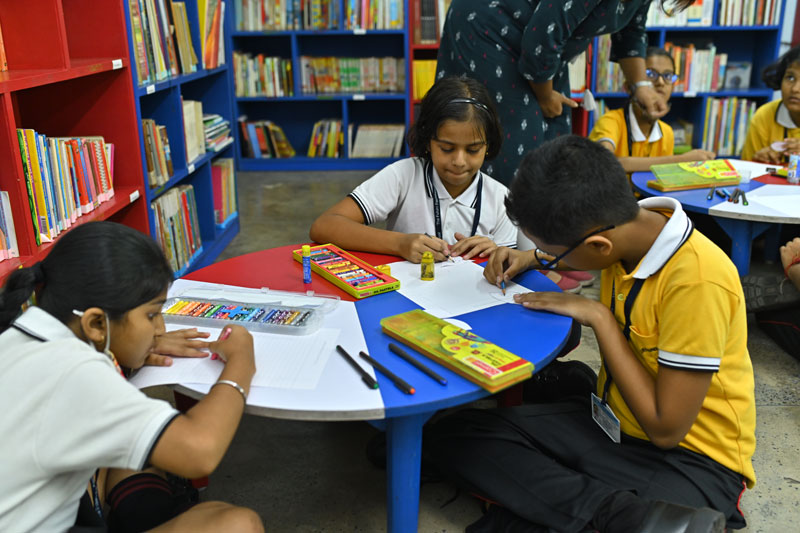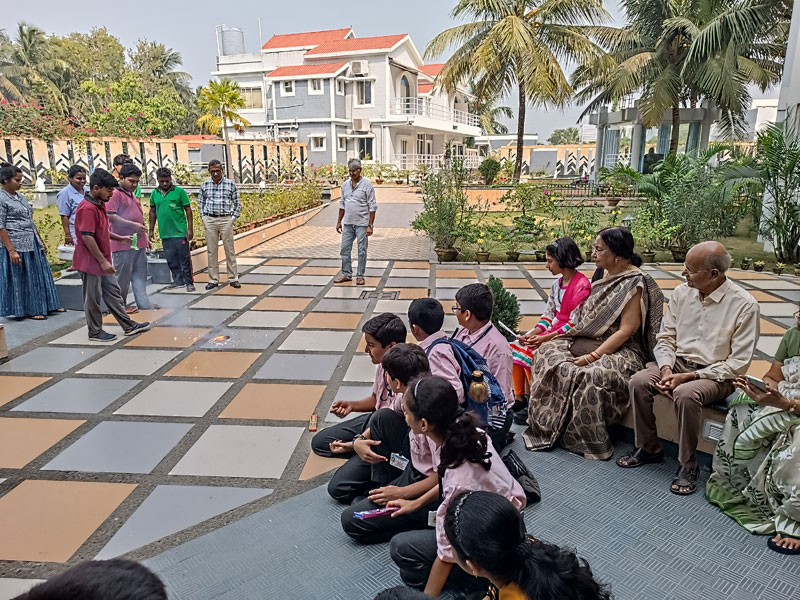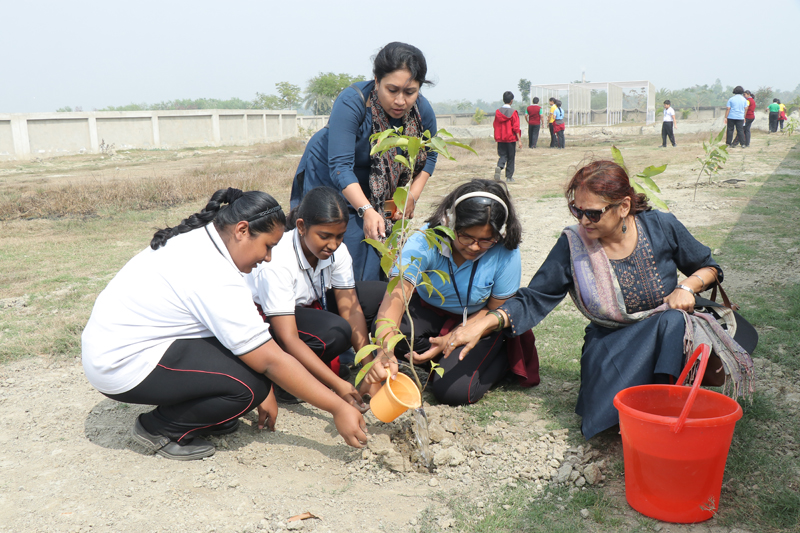SCHOLASTIC ACTIVITIES
-
- The school provides appropriate support and resources to implement and deliver the course curriculum. The teaching staff implements the course curriculum through a range of approaches and methods relevant to the learning needs. At the initial stages, it is supported through educational resources (given during the course of the session) that include customised reading materials, study aids, worksheets, hands-on activities, educational field trip, excursions, TLMs, etc. As the journey progresses, text books get added. The whole process seamlessly connects into the Board-level curriculum. The pedagogy enhances the skill level of our students along with the development of appropriate capacities, competencies, values, habits and attitudes. Drop down menu under Scholastics
1. Theme Teaching – Classes – I to IV
First the theme is decided upon and then a web plan is made. In this web, all the subjects are interlinked like English, Social Studies, Maths, EVS, Salient Language, Tertiary Language, Art-Craft, Life Skills, etc, with the theme. We always go from the known to the unknown, near to far and concrete to abstract developing the concepts in a spiral manner across the classes. The theme is introduced through activities like film show, listening to music, puzzles, word search, field trip, etc. The theme is progressed through experiments, paragraph writing, group discussions, research work, etc. Evaluation is done through various oral aural, written and hands-on exercises. Through this method of theme teaching, we try to develop various skills like; reading, writing, comprehending, listening, illustrating, observing, recording, associating, awareness, thinking, identifying, sequencing, etc. This method helps the child to get a wholesome experience, breaking the boundaries of the subject and learning in an integrated fashion. Each theme is followed for about 3-4 weeks.
2. Method of Teaching -Classes – V to VIII
The learners are viewed as active participants in their own learning process. Teaching involves the use of multi-sensorial tools & methodologies that aim at developing the cognitive, psychomotor and affective domains. Learner-centred, activity based, participatory learning tools are created and a constructivist approach is adopted to provide a holistic experience.
3.Method of Teaching – Classes – IX to XII
The traditional teaching methodologies like Lecture, Discussions, Questioning and Practicals in Science are applied. However, teachers make conscious endeavours to improve and modify the methodologies so that the classes become more interactive and the students have opportunities to share their views. Teaching processes like Seminars, Flipped Classrooms and PowerPoint Presentations give students ample opportunities of self learning and conducting independent research. Students are exposed to subject specific interactive sessions that are conducted by specialists in their fields.
4. Tutorials
Tutorial Classes in various subjects are offered to help the students in their educational journey. These classes help in strengthening the subject skills and concepts. Students who require some extra support may enrol themselves for these classes. The classes are taken by faculty members with proven expertise in their respective subject areas, proficient in handling these levels. These classes are administered by Sri Aurobindo Institute of Culture.

